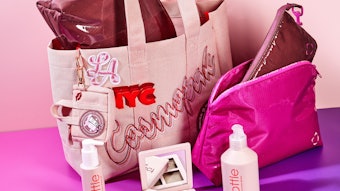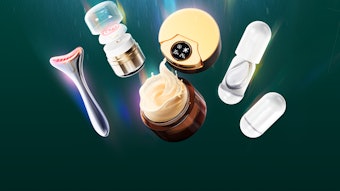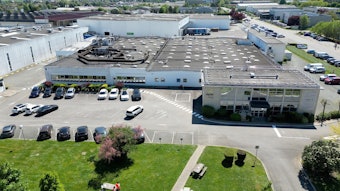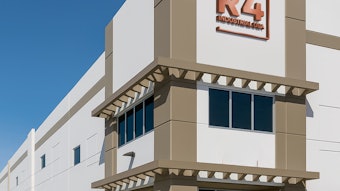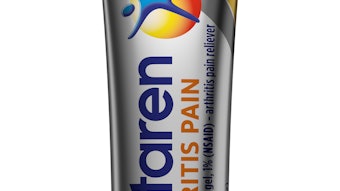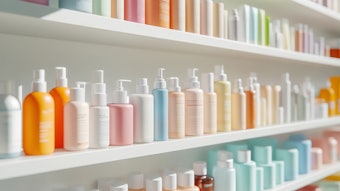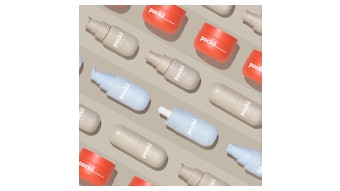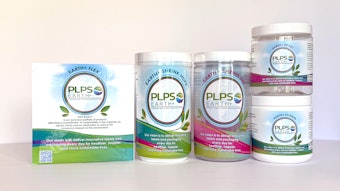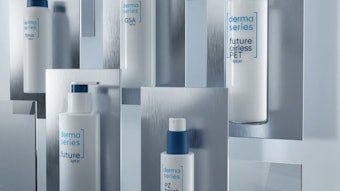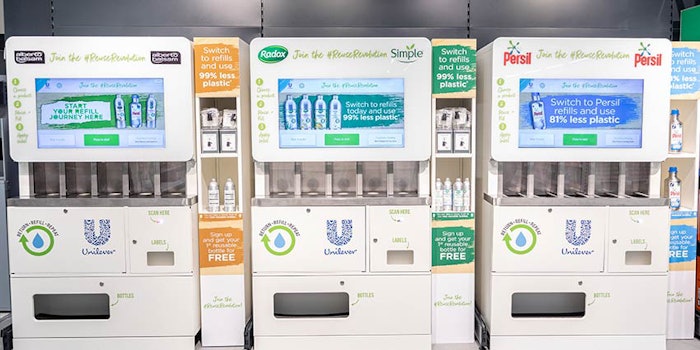
In partnership with Unilever, Beauty Kitchen's first Return • Refill • Repeat Refill Stations for beauty and personal care have launched in ASDA’s flagship sustainability store in Leeds. Beauty Kitchen has been a big proponent of the refillable concept, even launching a refillable hand sanitizer in May 2020.
The partnership provides refill trials for seven Unilever brands—Persil, PG Tips, Radox, Cif, Simple, Pukka and Alberto Balsam—at Asda's Middleton store. Unilever's refill platform currently features three formats:
1. Touch-free
Developed by Beauty Kitchen and RBC Group for beauty and personal care brands, this system will dispense Radox shower gel, Simple liquid handwash and Alberto Balsam shampoo and conditioner, as well as Persil laundry liquid.
Products will be dispensed in reusable aluminum or stainless steel bottles. First-time shoppers will be provided with a bottle. Returning shoppers will reuse their existing bottle.
After filling, shoppers add their printed label to the bottle and take it to checkout as usual.
Each bottle has a unique QR code, a feature which will enable full traceability of each bottle. Unilever can use this tracking to gain insights into the buy, use and refill lifecycle.
The stations could purportedly save the equivalent of 30,000 plastic water bottles in one store over one year, per the companies. The reduction would be in line with Unilever's commitment to cut its use of plastic packaging render all of its plastic packaging reusable, recyclable or compostable by 2025.
The Refill Stations can be remanufactured to incorporate updated technology to eliminate waste. The machines were developed and manufactured in the United Kingdom under an exclusive agreement between Beauty Kitchen and automatic retail manufacturing technology firm RBC Group.
2. In-home refills
Household cleaning brand Cif will offer in-home refills via concentrated refills. Thes "Ecorefills" reportedly use 75% less plastic compared to conventional bottles, reducing trucking traffic by 87%.
Per Unilever, "An entire fixture of ten times concentrated spray cleaners across the Asda estate could save 990 tonnes of plastic every year."
3. Self-serve containers
Unilever's PG Tips and Pukka tea brands will be available via self-serve containers for loose tea, allowing customers to use tongs to self-dispense fully biodegradable teabags. Shoppers will be able to take their own reusable container into store or buy one there. Once their container is full, they take it to the weighing station where a label is printed ready for payment at the checkout.
Behavior Change
To get consumers to first choose refill options in stores and then actually return to the store to refill their reusable receptacles, Unilever and Asda have focused on staff training to optimize consumer education and assistance.
Asda will also implement store signage to alert consumers to the opportunity and direct them to the Refill Zone.
Brands will also communicate plastic savings associated with each shopper to highlight the benefits of refills over single-use to motivate store returns.
“The need to act on the plastic pollution crisis is urgent and focusing consumer behavior on sustainability and cradle to cradle practice is a vital part of the solution," said Jo Chidley, founder of Beauty Kitchen. "This exciting partnership to power Refill Stations is a pivotal point in creating a sustainable future and instilling a reuse mindset."
“I am very excited by the potential to test and learn from this fantastic partnership with Asda," said Sebastian Munden, executive vice president of Unilever UK and Ireland. "It's a great opportunity for us to find out, across seven of our leading brands, just how shoppers respond to using refillable and reusable packaging in-store. We are all committed to driving lasting change when it comes to plastic, but to do so we must create scalable solutions and make it as easy as possible for people to make sustainable choices. On our journey to halving our use of virgin plastic by 2025 we will have to be bold and totally rethink products and packaging, and we will only do that by testing a range of solutions with shoppers in real-life conditions."
